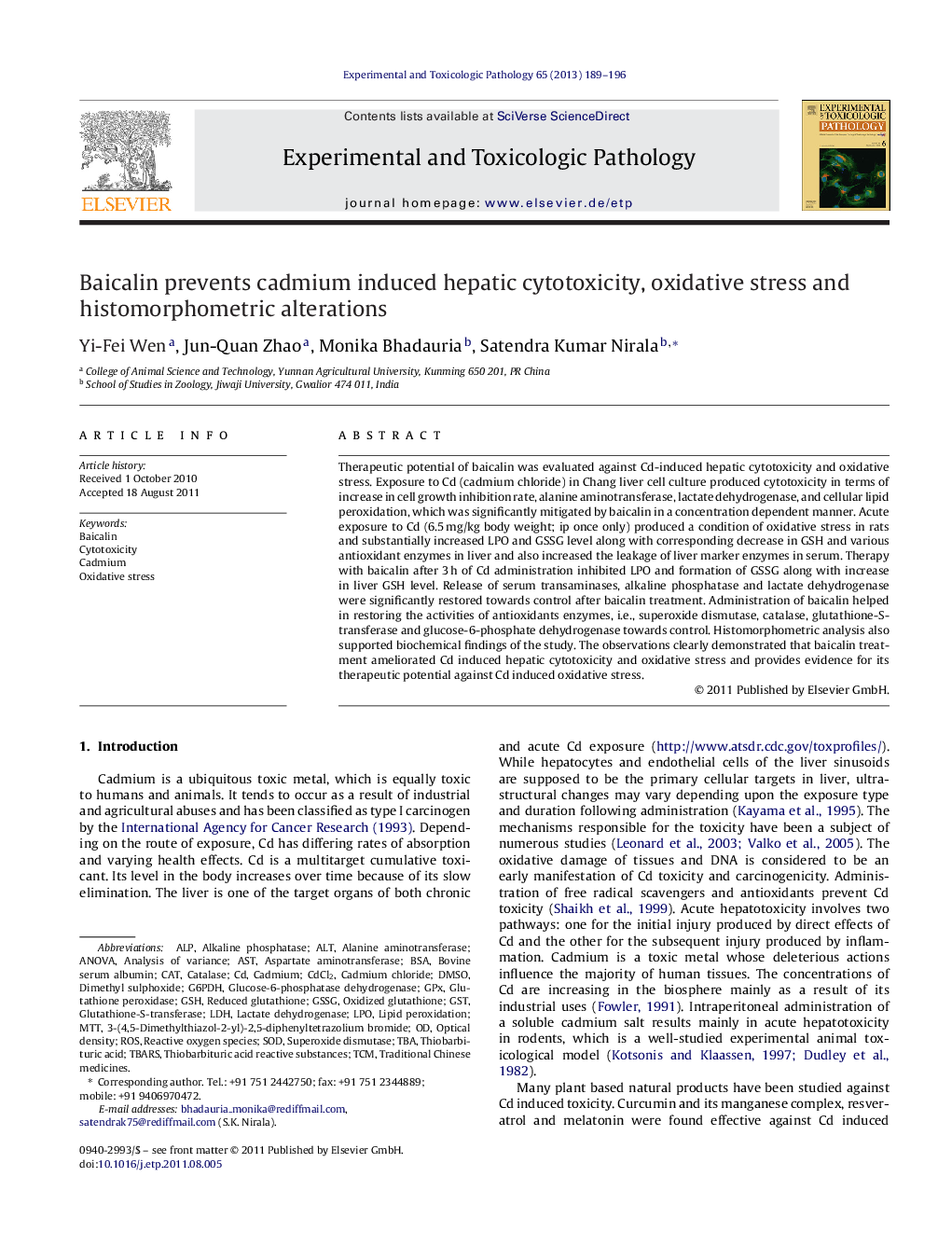| Article ID | Journal | Published Year | Pages | File Type |
|---|---|---|---|---|
| 2498915 | Experimental and Toxicologic Pathology | 2013 | 8 Pages |
Therapeutic potential of baicalin was evaluated against Cd-induced hepatic cytotoxicity and oxidative stress. Exposure to Cd (cadmium chloride) in Chang liver cell culture produced cytotoxicity in terms of increase in cell growth inhibition rate, alanine aminotransferase, lactate dehydrogenase, and cellular lipid peroxidation, which was significantly mitigated by baicalin in a concentration dependent manner. Acute exposure to Cd (6.5 mg/kg body weight; ip once only) produced a condition of oxidative stress in rats and substantially increased LPO and GSSG level along with corresponding decrease in GSH and various antioxidant enzymes in liver and also increased the leakage of liver marker enzymes in serum. Therapy with baicalin after 3 h of Cd administration inhibited LPO and formation of GSSG along with increase in liver GSH level. Release of serum transaminases, alkaline phosphatase and lactate dehydrogenase were significantly restored towards control after baicalin treatment. Administration of baicalin helped in restoring the activities of antioxidants enzymes, i.e., superoxide dismutase, catalase, glutathione-S-transferase and glucose-6-phosphate dehydrogenase towards control. Histomorphometric analysis also supported biochemical findings of the study. The observations clearly demonstrated that baicalin treatment ameliorated Cd induced hepatic cytotoxicity and oxidative stress and provides evidence for its therapeutic potential against Cd induced oxidative stress.
